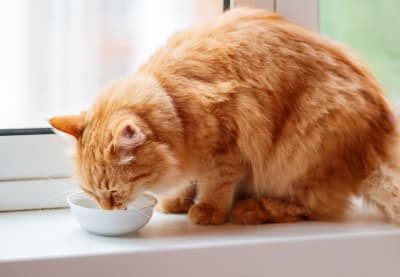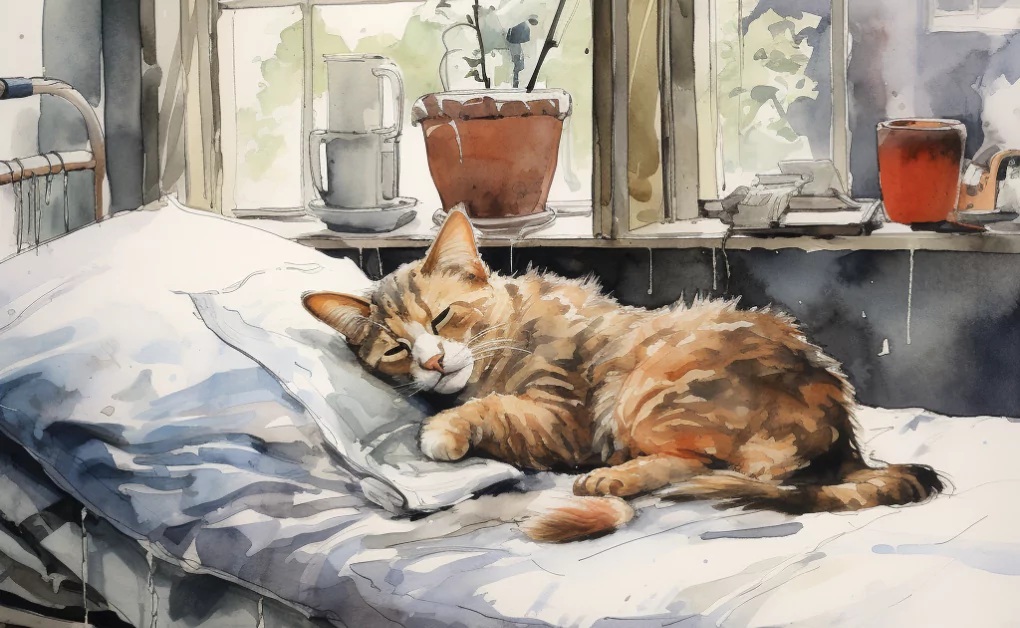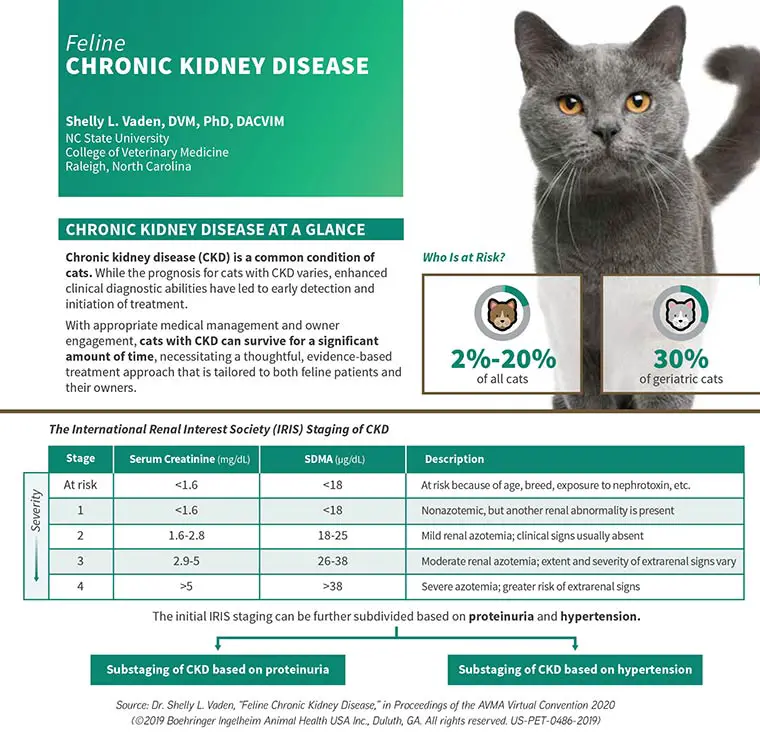Treat a cat with kidney issues by providing a special diet and ensuring proper hydration. Consult a vet for tailored treatment.
Kidney issues in cats require prompt and effective treatment to ensure their well-being. Chronic kidney disease is common, especially in older cats. Early detection and management significantly improve their quality of life. A diet low in phosphorus and protein helps reduce the kidneys’ workload.
Hydration is crucial, as it helps flush toxins from the body. Regular vet visits allow for monitoring and adjustments in treatment. Medications might be necessary to control symptoms and slow disease progression. With proper care, cats with kidney issues can live comfortably for many years. Always follow a veterinarian’s guidance to ensure the best care for your feline friend.
Recognizing Kidney Issues
Identifying kidney issues in cats early is crucial for effective treatment. Veterinary care, special diets, and hydration can manage symptoms and improve your cat’s quality of life.
Common Symptoms
Cats with kidney issues often show increased thirst and frequent urination. They may also have weight loss, poor appetite, and lethargy. Other signs include bad breath and a dull coat. Pay attention to these symptoms.
When To Consult A Vet
Consult a vet if your cat shows any of these symptoms. Early detection can help manage the condition better. The vet may perform blood tests and urine analysis. These tests help in diagnosing kidney issues early. Follow the vet’s advice for treatment and care.
Dietary Adjustments
A low-protein diet helps reduce stress on your cat’s kidneys. Choose foods with high-quality protein. This ensures your cat gets essential nutrients. Consult a vet for the best diet plan. Always monitor your cat’s health and adjust as needed.
Cats with kidney issues need lots of water. Keep fresh water available at all times. Wet cat food can help increase water intake. Consider using a water fountain to encourage drinking. Adding a bit of tuna juice can make water more appealing. Monitor your cat’s hydration levels daily.
Natural Supplements
Herbal remedies can help cats with kidney issues. Dandelion root is a natural diuretic. Nettle leaf helps with inflammation. Cranberry extract supports urinary tract health. Always consult your vet before using herbal remedies.
Cats with kidney issues need extra vitamins and minerals. Vitamin B complex helps with energy. Omega-3 fatty acids reduce inflammation. Potassium is important for muscle function. Always check with your vet for proper dosage.

Credit: www.dutch.com
Hydration Strategies
Cats with kidney issues need more water. Wet food contains a lot of water, which is good for them. It helps keep them hydrated. Wet food also tastes better to many cats. This makes it easier for them to eat. It provides essential nutrients too.
Place water bowls in different spots around the house. This encourages cats to drink more. Use ceramic or stainless steel bowls. These materials keep the water fresh. Adding a water fountain can also help. Cats like moving water. This can make them drink more. Adding ice cubes to the water can be fun for them.
Creating A Comfortable Environment
Keep your home quiet and calm. Loud noises can scare your cat. Soft music can help relax them. Give them plenty of attention and affection. This makes them feel safe and loved. Use natural light whenever possible. Artificial light can be harsh. Try to avoid sudden changes in their routine. Consistency is key.
Provide comfortable beds for your cat. Soft blankets are a good choice. Cats love to hide. Create safe hiding spots with cardboard boxes or covered beds. Make sure these spots are easy to access. Keep the litter box in a quiet place. This helps them feel secure. High perches can give them a good view and make them feel safe.

Credit: www.lakecross.com
Monitoring Health
Treating a cat with kidney issues involves providing a balanced diet, ensuring adequate hydration, and regular vet check-ups. Administer prescribed medications and monitor for any changes in behavior or appetite.
Regular Check-ups
Take your cat to the vet often. Regular check-ups help catch problems early. Early detection is key to treatment. Blood tests show how well the kidneys work. Urine tests check for infections. Vets can spot changes in your cat’s health. Follow the vet’s advice for diet and medication. Always ask questions if you are unsure. Keep a record of vet visits and treatments. This helps track progress and changes.
Tracking Symptoms
Watch your cat for signs of kidney issues. Increased thirst and frequent urination are common. Weight loss and poor appetite also signal problems. Cats may vomit more often. Look for lethargy or weakness. Note any changes in behavior. Regular monitoring helps manage the illness. Write down symptoms to share with your vet. This helps in adjusting treatments as needed.
Emergency Signs
Cats with kidney issues often show serious symptoms. They may start vomiting and lose appetite. They might also become very tired and weak. Watch for changes in drinking and urination habits. Increased thirst and frequent urination can be warning signs. Weight loss and bad breath are also common. If your cat has these symptoms, it’s time to see a vet.
Call your vet right away if you notice severe symptoms. Keep your cat calm and comfortable. Provide fresh water at all times. Avoid feeding your cat any new food. Follow any instructions given by your vet. Quick action can help manage the condition better. Regular check-ups are crucial for cats with kidney issues.
Preventive Measures
Feed your cat a balanced diet. Make sure they have plenty of fresh water. Keep their weight in check. Obesity can harm their kidneys. Provide regular exercise. It helps their overall health. Avoid giving them too many treats. Treats can be high in harmful substances. A healthy lifestyle keeps their kidneys working well.
Take your cat to the vet regularly. Routine vet visits can catch issues early. The vet will run blood tests. Blood tests help monitor kidney health. The vet may also do urine tests. Urine tests show how well the kidneys work. Keep a record of all visits and tests. This helps track their kidney health over time.

Credit: beyondpets.com
Frequently Asked Questions
How Do I Help My Cat With Kidney Problems?
Consult a vet for a proper diagnosis. Provide a kidney-friendly diet. Ensure fresh water is always available. Administer prescribed medications. Regularly monitor your cat’s health and follow the vet’s advice.
How Long Will A Cat Live With Kidney Disease?
Cats with kidney disease can live for several months to years with proper treatment and care. Early diagnosis improves lifespan.
Can You Save A Cat With Kidney Failure?
Yes, you can manage a cat’s kidney failure with proper veterinary care, diet, and medication. Early detection is crucial.
How To Hydrate A Cat With Kidney Disease?
Ensure fresh water is always available. Offer wet food to increase fluid intake. Consider using cat-specific hydration supplements. Consult your vet for subcutaneous fluids if necessary.
Conclusion
Caring for a cat with kidney issues requires vigilance and love. Regular vet visits and proper diet are essential. Always monitor your cat’s symptoms closely. Early intervention can make a significant difference. With the right care, your cat can enjoy a comfortable life.
Stay proactive and prioritize their health.

Hello, this is Frank Swanson, the owner, and operator of Pet Info Hut. I created this website as a way to share my love of pets with the world. I have over 7 years of experience working with animals, and I have a passion for helping people care for their pets. I hope that you find my website useful and informative. Thanks for visiting!
